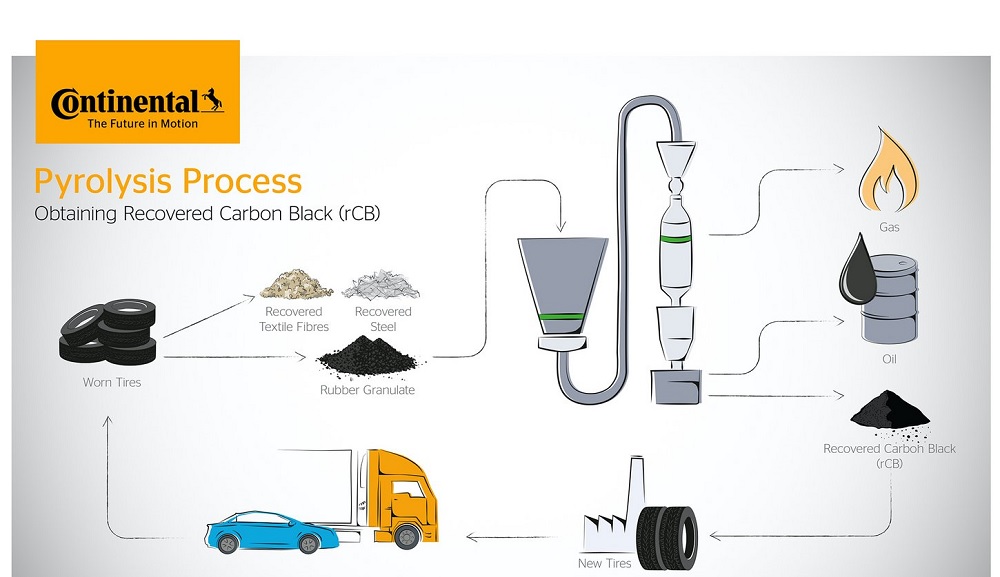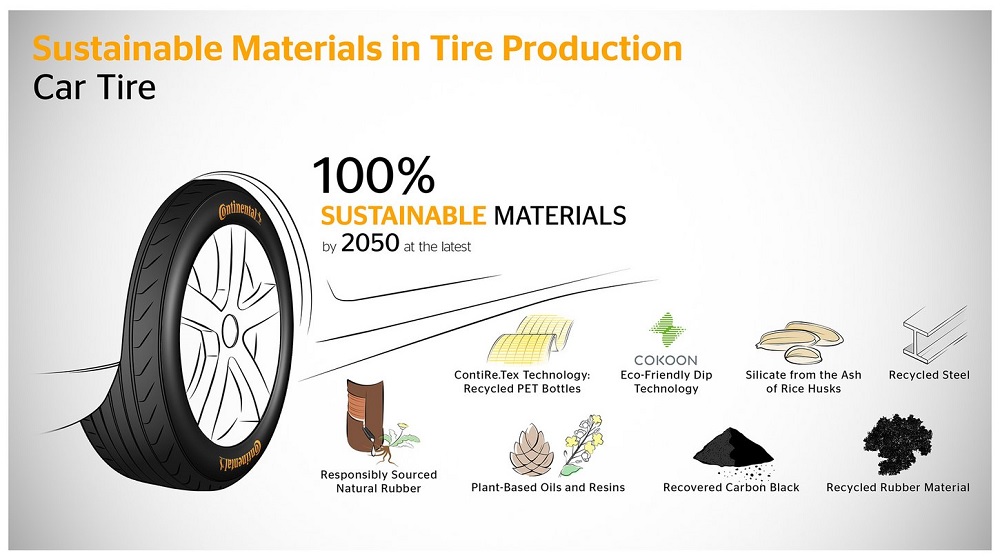Continental Tire has long been one of the more open tyre manufacturers regarding sustainability and recycling. It recently released an overview of its plans for the future.
By 2050 Continental aims to manufacture all tyres from sustainable materials. As always, Tyre and Rubber Recycling make the caveat that recycling and sustainability may be linked, but they are not synonyms.
Some of the technologies being used by Continental include the long-standing use of recycled materials such as the ash from rice husks. Others are still developing technologies, such as the use of rubber from dandelions. Then there is the use of recycled rubber and the use of textiles from recycled PET bottles in tyres.
Claus Petschick, Head of Sustainability at Continental Tires, is clear about Continental’s mission, saying, “Continental is on the road toward becoming the most progressive manufacturer in the tyre industry in terms of sustainability. We aim to use 100 per cent sustainable materials in our tyre products by 2050 at the latest.” He adds, “Our innovative power enables us to break new and even more sustainable ground. This encompasses everything from the origin and sourcing of our materials through to the reuse and recycling of our tyres.”

Skipping over the non-rubber-derived materials, Tyre and Rubber Recycling was interested in the tyre-derived content of Continental’s future tyres.
One of the most important areas of tyre recyclates for Continental is the use of recovered carbon black. The company has signed a development agreement with Pyrum Innovations AG to use high-quality raw materials from the pyrolysis oil recovered from Continental’s own production. This work is expected to be expanded to include pyrolytic materials from end-of-life tyres in the future.
However, there is also an interest from Continental in the use of recovered rubber material in tyres. Continental has long used its own reclaim – Conti-Reclaim from material recovered from its Stocken retread operation. Continental also uses reclaimed or devulcanised rubber from other sources.

Considering the broader picture, we can see Continental using a wide range of recycled materials and sustainable supplies in its future tyre production. At this stage, Continental has not verified the percentage of recycled rubber or recovered/ sustainable carbon black it can accommodate. Still, for Continental, at least, the tyre industry is moving in the right direction.




















